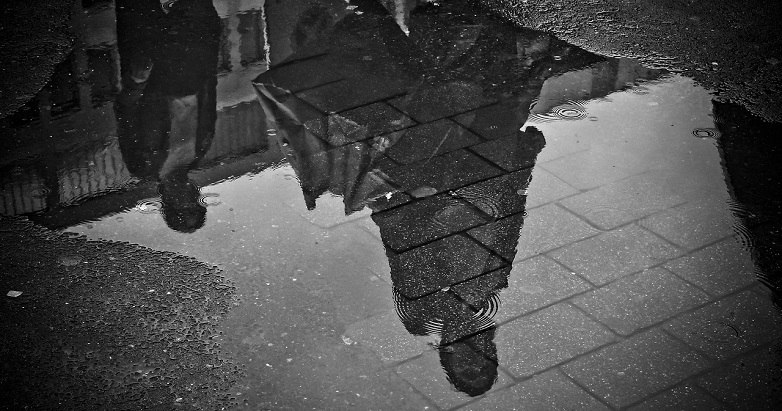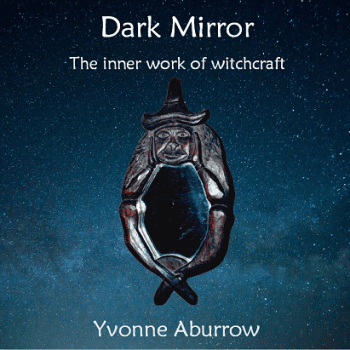[A content warning for this post: I’m going to be discussing issues related to consent, including overt references to rape and sexual abuse. There are no graphic images or text, but I encourage anyone for whom these are sensitive topics to exercise caution and self-care. —♥]
Hello, beautiful creatures.
This isn’t what I wanted to write today.
I wanted to write about sex magic: queer, witchy, polytheistic sex magic. I’ve got a few things to say on that subject, as you might imagine, and I’d have had a lot of fun saying them. With luck, you might’ve even had some fun reading them. Sadly, that’s not in the cards today.
I want to write about sexuality and magic, but I can’t write about those things today without addressing the problem of sexual predation and abuse in the Pagan community.
This has come up multiple times in the recent past, and most recently in the allegations of sexual abuse made against the late Isaac Bonewits, cofounder of Ár nDraíocht Féin, by Moira Greyland, daughter of author Marion Zimmer Bradley and Walter Breen, both of whom sexually abused her.
I’ve seen several responses to these allegations from various folks in the Pagan blogopshere, some of which have focused on condemnations or defenses of Bonewits. This will be neither. I’m not here to discuss Greyland’s allegations, because I’m not qualified to judge them, and if you’re reading this, odds are good that you aren’t, either. The extent to which I have anything at all to say on the subject can be summarized as follows:
- Women and children are, all too frequently dismissed, and disbelieved when they report sexual abuse.
- The only two people who can claim to know what actually happened are Greyland, whose account we have, and Bonewits, who died in 2010.
However, I’ve seen a couple of responses asking broader questions, and offering suggestions I feel are well worth considering.
Mark Green addresses the allegations directly, linking them to larger trends of abuse both in mainstream culture and within the Pagan community. In addition to a firm rejection of sexually predatory behavior, Green’s piece calls for a repudiation of the 1960s sexual ethos with which modern Paganism is commonly associated, and which he suggests is responsible for the attitude of look-the-other-way permissiveness which enables predators to commit abuses.
Laura Tempest Zakroff takes a measured, nuanced approach to the question of how the p-word community is (and should be) dealing with abuse and toxicity… and, as some of you are aware, one of my big soapboxes is the value of nuance in all forms of discourse.) Tempest is careful to note that, even though “things are going to suck before we can effectively work together to solve a problem,” the p-word community as a whole really is working towards doing better. In light of recent events, that may seem cold comfort, and the work ahead may seem interminable… but magic is about doing the work.
This is the work ahead of us. If we cannot clean our own house, how can we make any claim to honor, virtue, valor, or the sacred?
If you’ve been reading this blog for a bit, you may be aware that I’ve spent a bit of time now banging on about issues of consent in magical, polytheist, and Pagan praxis. I’ve defined how I use the term, talked about agency and agenda, discussed some of the moral and ethical issues involved, and offered some ways in which consent can usefully inform how we practice our arts, crafts, faiths, paths, and traditions. I suggested, and still suggest, that a consent-based praxis is more ethical, more consistent, and frankly more powerful than the alternative.
What I left out, possibly because I felt it was too obvious to bear stating, was the reason why consent is important. So, let’s start with the following:
Other people belong to themselves, and exist for themselves. They do not exist for my convenience, to meet my needs, to sate my desires, to give me pleasure. People are people, not objects.
This is a statement with which anyone who isn’t a solipsistic psychopath should be able to agree. It’s one of the developmental milestones of human development from infant to full-grown adult. It shouldn’t be shocking, edgy, controversial, or provocative. It should be part of the basic criteria for admittance into society.
The fact that there are people in the Pagan, polytheist, and occult communities who can find anything about it to criticize should horrify and alarm all of us who don’t want to be seen as prey, as objects to be used or pieces of meat to be consumed.
There’s a common narrative around sexual abuse which casts it in terms of “assault,” and suggests that victims of such abuse should’ve done more to prevent it. This is called “victim-blaming.” It’s an assignation of the responsibility for the abuse to the victim, rather than to the perpetrator. It’s an appalling act of violence against people who’ve already been traumatized, and if it were within my meager power to make it so, the tongues of people who say such things would turn black and fall out before the first word left their lips.
Even more common is the extrapolation of this narrative, the one which tells potential victims how they should comport themselves in order to avert sexual assault: “Don’t go anywhere alone, don’t dress sexy, don’t leave your drink unattended, don’t go to parties,” and so on. This is exactly the same flavor of victim-blaming as before, and merits the same plague of rotting tongues.
Increasingly, in response to these two appalling narratives, we can see a narrative rising that responsibility falls on the predator. This is true, certainly, and it’s miles better than the alternative, but it tends to overlook the problem that predators have no investment in accepting responsibility for their actions. Most of them, in fact, fail to even understand what the problem is. That’s kind of the definition of being a predator, after all: they see other people as prey, as not fully human.
As I said above, the suggestion that people belong to themselves isn’t edgy or controversial… or, at least, it shouldn’t be. If that’s what you’re looking for, try the following on for size:
The responsibility for preventing abuse, sexual or otherwise, in our communities doesn’t lie with victims or perpetrators.
It lies with us.

And we have, as a community, spent far too much time and energy in denial of these facts.
If we would truly be a community that lives the values it professes, if we want to be a community that has any right to call itself ethical or moral—hell, if we want to claim any right to exist at all—we have to start here. We have to accept our part in creating a culture in which such abuses happen, and then we have to change the culture. We have to be able and willing to identify unacceptable and harmful behaviors. We have to call attention to abusive behaviors when we see them, and hear the people calling attention to those behaviors. We have to be willing to have our own behaviors challenged, and to accept and apologize when we have ourselves overstepped.
And perhaps hardest of all, we have to be willing to remove people from our communities, to tell someone we’ve known and respected that they are no longer welcome here. We have to be willing to rescind our protection of predators, to make them accountable for their actions. If a crime has been committed, we have to be willing to turn that person in to the authorities.
If we cannot or will not do those things, can we truly blame all the Moira Greylands out there for despising us, for thinking that our magic and gods and principles are nothing but a veneer of bullshit hiding a core of corruption and lies?
As Tempest rightly points out at the end of her brilliant piece, “We are the ones we have been waiting for.” We cannot ask the victims to solve this problem, and it’s pointless to ask the predators. It’s up to us. We have the power to change the culture, each of us, and all of us together.
And that starts with making the choice to do so.
Until next time, dear ones, let’s all try to be the people we want to believe we are. ♥
The “Mirror” Series:
















